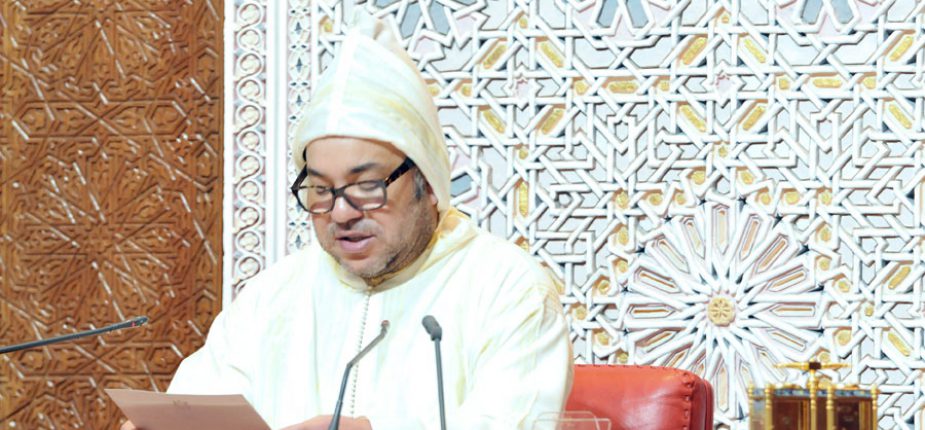
 King Mohammed VI of Morocco has renewed his strong determination to press ahead with the reform process in his country and to address the difficulties and shortcomings noticed in the Moroccan development model, particularly with regard to administrative services, as well as elected councils and local governments.
King Mohammed VI of Morocco has renewed his strong determination to press ahead with the reform process in his country and to address the difficulties and shortcomings noticed in the Moroccan development model, particularly with regard to administrative services, as well as elected councils and local governments.
In a speech he delivered Friday (October 13) before members of the Parliament’s two Chambers, marking the opening of the fall parliamentary session, King Mohammed VI recalled the critical analysis of the Moroccan administration services he had made in the State of the Nation Address last July 29.
Actually, in the State of the Nation Address and in a speech before the Parliament in October 2016, King Mohammed VI had vehemently criticized the public administration for its inefficiency, poor performance and sluggish services, and
stressed the rights and obligations of officials in their relations with citizens.
Pointing out, however, that the critical analysis is not an end in itself, he said in his Friday speech “In fact, it is the beginning of a crucial stage in which the holding of public office is linked with accountability, and during which appropriate answers and solutions to citizens’ pressing problems and issues must be found”.
“I do not criticize just for the sake of criticizing, nor do I let matters go unattended. What I want is for the situation to be addressed, mistakes corrected and shortcomings remedied”.
I am paving the way for an effective approach and for a March of a new kind, he announced, reiterating his strong determination to press ahead with the reform process and to lead by example.
“As the guarantor and custodian of the rule of law, and the first person to respect it, I have never hesitated to hold to account anyone who has patently underperformed while carrying out his or her professional or national duties,” he said, warning that “the situation today commands greater firmness in order to put an end to complacency and to disregard for citizens’ interests”.
The Monarch stressed in this connection the need “to find practical, applicable solutions to the real problems, and fulfil the reasonable, legitimate expectations of citizens in the areas of development, education, health, employment and so on,” and at the same time, “to make sure that there is judicious, continuous monitoring of the progress made in the implementation of social and development programs, and that we carry out systematic, impartial assessment throughout the implementation phases”.
Part of his Africa-oriented strategy and out of his concern to see materialized all the agreements concluded with African partners, King Mohammed VI announced his decision to create a ministerial department, within the Ministry of Foreign Affairs, in charge of African affairs – especially investment – as well as a monitoring unit, both at the Ministry of Interior and the Ministry of Finance.
He also called on the Court of Auditors to monitor and assess the implementation of public projects in all of the Kingdom’s regions.
On the other hand, King Mohammed VI urged the government to establish a timetable for completing the implementation of advanced regionalization and called elected councils, particularly at regional level, to shoulder their responsibility when managing affairs in their regions, and to take action to respond to the needs of local populations and answer their legitimate demands.
In this connection, he called for the preparation and adoption of an advanced administrative devolution charter and for setting a precise timetable for its implementation.
“Regardless of how thorough and full-fledged it is, a development model will remain limited in scope if it does not comprise effective mechanisms that allow for evolution at local and regional levels,” the monarch said.
The King recalled that he has repeatedly called for speeding up the full implementation of advanced regionalization, because, he explained, “that system provides solutions and fulfils social and development expectations in all of our regions”.
He argued that “this is the most effective way to tackle local problems and respond to the demands of local populations since it involves listening to citizens and including them in decision-making, especially through their representatives in elected councils”.
The Monarch stressed further the need to ensure that public policies address the concerns of citizens, in the light of the needs and specific features of each region, noting that there are no ready-made solutions to the problems encountered in the various regions.
